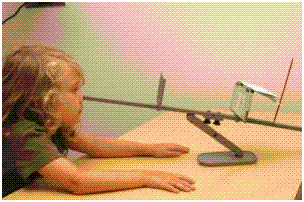
Welcome to the Center for Disability Resources Library Blog! Here we will welcome your comments and suggestions about books and videos that you have borrowed, materials that you would like to see purchased, or anything involving the day-to-day operations of the library or even of disabilities in general. Visit the CDR Library's web site!
Thursday, April 30, 2009
Autism Genes Discovered; Help Shape Connections Among Brain Cells

Wednesday, April 29, 2009
Pickens County Area Connection
Brain Works Best When Cells Keep Right Rhythms, New Studies Suggest

Tuesday, April 28, 2009
Meditation Provides Hope For People With Depression

The results of a small-scale randomised trial of the approach, called mindfulness-based cognitive therapy (MBCT), in currently depressed patients are published in the journal Behaviour Research and Therapy.
Monday, April 27, 2009
New families of children with disabilities center opens Thursday

When should Alzheimer's patients stop driving?

Friday, April 24, 2009
Lack Of Key Molecule Leads To Deafness

But the era of the hearing aid, and shouting at aging in-laws, may soon be over. A new study by a geneticist and hearing loss expert at Tel Aviv University has uncovered one of the root causes of deafness.
Prof. Karen Avraham of the Department of Human Molecular Genetics, Sackler School of Medicine at Tel Aviv University, has discovered that microRNAs, tiny molecules that regulate cell functions, help us hear. Found in “hair” cells of the ear, this discovery opens an entirely new window for possible treatments, and a cure for all types of deafness, age-related or genetic.
To view entire article, please click on link above.
Thursday, April 23, 2009
Maternal Immune Response To Fetal Brain During Pregnancy A Key Factor In Some Autism

Wednesday, April 22, 2009
Neurodegeneration Study Reveals Targets Of Destruction

Tuesday, April 21, 2009
New Wireless Sensor First For Instant Monitoring Of Brain Oxygen

Monday, April 20, 2009
ABA Workshop: Teaching People with Autism: Evidence-Based Practices for Promoting Independence and Enjoyment

Test Quickly Assesses Whether Alzheimer's Drugs Are Hitting Their Target
 ScienceDaily (Apr. 15, 2009) — A test developed by physician-scientists at Washington University School of Medicine in St. Louis may help assess more quickly the ability of Alzheimer's drugs to affect one of the possible underlying causes of Alzheimer's disease in humans, accelerating the development of new treatments.
ScienceDaily (Apr. 15, 2009) — A test developed by physician-scientists at Washington University School of Medicine in St. Louis may help assess more quickly the ability of Alzheimer's drugs to affect one of the possible underlying causes of Alzheimer's disease in humans, accelerating the development of new treatments.Scientists used the test to show that an Alzheimer's drug given to healthy volunteers reduced production of a substance known as amyloid beta (A-beta), a normal byproduct of human metabolism that builds to unhealthy levels forming brain plaques in Alzheimer's patients. The drug candidate, LY450139, which is also known as semagacestat, is being studied in clinical trials by Eli Lilly and Company.
To view entire article, please click on the title above.
Friday, April 17, 2009
Eye Exercises Help Patients Work Out Vision Problems, Optometrist Says

Thursday, April 16, 2009
Family Connection' s Open House is a Huge Success!

On April 16th, Family Connections of Columbia, SC, celebrated the grand opening of "The Connection," South Carolina's first full-service support center dedicated entirely to families raising a child with special needs. The ribbon-cutting ceremony was held at 10:45 am, and the event included a steel drum band from Dent Middle School, a speech by Executive Director Andy Pope, and even some talks by children and a parent who regularly participate in the Family Connections' services.

The School of Medicine Library and the Center for Disability Resources Library were proud to help sponsor the new support center with the purchase of computers and equipment through a $5,959 grant awarded from the National Network of Libraries of Medicine Southeastern/Atlantic Region to Roz Anderson and Steven Wilson for their "Creating the InfoAble Portal" project. The grant will improve access to information technology and library and information services by creating the InfoAble Portal, which will become the default homepage for the new multimedia computer system and a new product feature on the Center for Disability Resources Library web site.

NOTE: Click the title above to go to the Family ConnectionSC web site.
SSA Hiring Plans for 2009: Linking Candidates with Disabilities to SSA Jobs

Date: April 21, 2009, 1:00-2:30 pm Eastern
The Social Security Administration has recently received funding to hire a significant number of employees throughout the country. This hiring initiative offers a unique opportunity for individuals with disabilities who may want to get a job with SSA. These jobs will be at various skill levels including a number of entry-level positions.
Yoko Ono Auctions Art for Autism

BBC News, New York By Tom Lane
If you have ever wanted a piece of art by Yoko Ono, now is your chance.
The Japanese artist and widow of John Lennon unveiled a new work on the occasion of the United Nation's World Autism Awareness Day.
Her seven-foot (2.1m) mural, entitled "Promise", currently stands in the lobby at the UN in New York, but will be auctioned for an autism charity.
Wednesday, April 15, 2009
Photovoice: The Issue, The Image, The Voice, The Solution

An Evening with the Office for Civil Rights

New Options For People With PKU

Tuesday, April 14, 2009
Young Adults At Future Risk Of Alzheimer's Have Different Brain Activity, Says Study

Monday, April 13, 2009

Touch Helps Make The Connection Between Sight And Hearing

Friday, April 10, 2009
Family Therapy May Help The Depressed Patient

Thursday, April 09, 2009
Teaching Autistic Teens To Make Friends

Tuesday, April 07, 2009
FAMILY CONNECTION SPRING BENEFIT

For More Information, call 803-782-0639 or 1-866-275-7273
Monday, April 06, 2009

Friday, April 03, 2009
Dealing With Dwarfism

Thursday, April 02, 2009
Silicone Ear Looks Just Like The Real Thing

ScienceDaily (Mar. 19, 2009) — To look at Matthew Houdek, you could never tell he was born with virtually no left ear. A surgery at Loyola University Health System made it possible for Houdek to be fitted with a prosthetic ear that looks just like the real thing.
Ear-nose-throat surgeon Dr. Sam Marzo implanted three small metal screws in the side of Houdek's head. Each screw is fitted with a magnet, and magnetic attraction holds the prosthetic ear in place.
It takes only a few seconds for Houdek to put his prosthetic ear on in the morning and take it off when he showers or goes to bed. It doesn't fall off, and it's much more convenient than prosthetic ears that are attached with adhesive.
"I'm extremely happy with it," said Houdek, 25, who lives in Chicago. "It turned out better than I expected."
To view the entire article, please click on the title above.
Wednesday, April 01, 2009
Quinn Bradlee, Son of 'Post' Power Duo, Writes of Disabilities
 USA Today (March 31, 2009) --By Craig Wilson -- WASHINGTON — Quinn Bradlee was born with more than a few advantages. He has famous parents, former Washington Post executive editor Ben Bradlee and journalist Sally Quinn, and grew up in a historic mansion here in tony Georgetown. An ivy-covered life of fancy New England prep schools and summer houses were his for the taking.
USA Today (March 31, 2009) --By Craig Wilson -- WASHINGTON — Quinn Bradlee was born with more than a few advantages. He has famous parents, former Washington Post executive editor Ben Bradlee and journalist Sally Quinn, and grew up in a historic mansion here in tony Georgetown. An ivy-covered life of fancy New England prep schools and summer houses were his for the taking.But he had a hole in his heart at birth. And that was only the beginning.
After years of medical problems, Bradlee, 26, was diagnosed with velocardiofacial syndrome (VCFS), a genetic disorder. Harvard, the alma mater of his father, grandfather and great-grandfather, was not in his future.
Not that it has slowed him down.
He has written a refreshingly honest memoir, A Different Life: Growing Up Learning Disabled and Other Adventures (Public Affairs, $24.95), in which he talks about everything from his overprotective and hard-charging mother — "she can be a little high-strung at times" — to feeling as if he's always fighting an uphill battle.
Autism Skews Developing Brain With Synchronous Motion And Sound

ScienceDaily (Mar. 30, 2009) — Individuals with autism spectrum disorders (ASD) tend to stare at people's mouths rather than their eyes. Now, an NIH-funded study in 2-year-olds with the social deficit disorder suggests why they might find mouths so attractive: lip-sync—the exact match of lip motion and speech sound.

